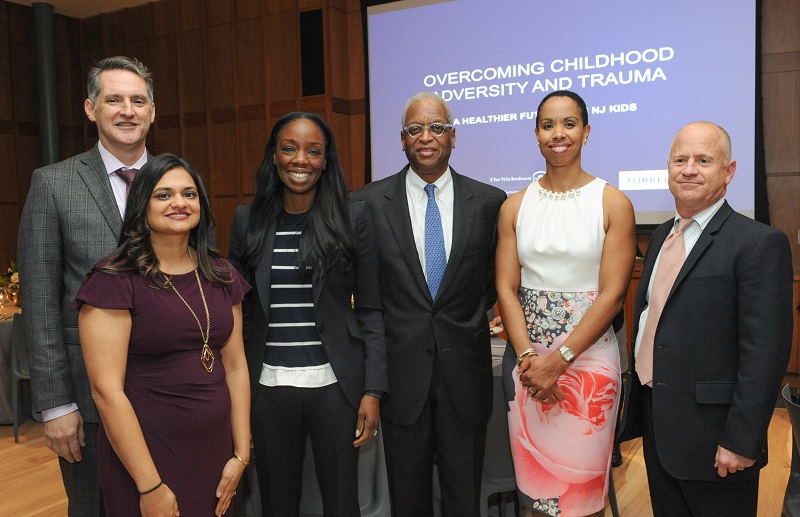Nicholson Foundation and Partners Announce Major Commitment to Address Childhood Adversity
On Tuesday, November 13 in Princeton, NJ, The Nicholson Foundation joined with political, business, and philanthropic leaders from across New Jersey to launch a major new initiative to address Adverse Childhood Experiences (ACEs). At the event, The Nicholson Foundation and the Burke Foundation announced that they will each contribute $1 million to a pooled fund dedicated to supporting programs addressing and treating ACEs in New Jersey. The Turrell Fund, Horizon, and PNC Bank also provided statements of financial and professional support for this ACEs initiative.
Held in the Morven Museum in Princeton, the event, “Overcoming Childhood Adversity and Trauma: A Healthier Future for NJ Kids,” featured remarks by New Jersey First Lady Tammy Murphy, Dr. Nadine Burke Harris, a pioneering pediatrician in the field of toxic stress and ACEs, and Dr. Lauren Smith, Co-CEO at FSG, which produced a Nicholson-funded research study on ACEs in New Jersey. All the speakers stressed that building a brighter future for New Jersey begins with strengthening our capacity to help children cope with, and heal from, adverse experiences.
L-R: Arturo Brito, Executive Director of The Nicholson Foundation; Atiya Weiss, Executive Director of the Burke Foundation; Nadine Burke Harris, Pediatrician, Founder & CEO of the Center for Youth Wellness; Curt Fields, President & CEO of the Turrell Fund; Lauren Smith, Co-CEO of FSG; and James Burke, Chairman of the Burke Foundation.
“Public-private partnerships like this play an important role in our efforts to break the cycle of childhood adversity and build a stronger New Jersey,” said Murphy. “By addressing the trauma that children face early in life, we are setting children on the path of brighter and healthier futures.”
According to FSG’s ACEs study, 813,000 children—41% of all the children in New Jersey—experience at least one ACE. Other findings from the report include:
- Children from communities of color and low-income families are at much higher risk for ACEs than are other children.
- Relative to other states, New Jersey has less comprehensive data collection efforts to assess the burden of ACEs.
- The most common ACEs experienced by children in New Jersey are living with economic hardship, living with divorced or separated parents, living with someone with substance use disorder, and experiencing child maltreatment.
The study also found that opportunities to address ACEs may include program, policy, and system-level efforts focused on building resilience, preventing ACEs, and helping children heal from adverse events. It noted that several New Jersey cities—including Newark, Camden, and Trenton—have already taken significant steps to address ACEs by catalyzing cross-sector action and promoting innovation in clinics, schools, and communities.

